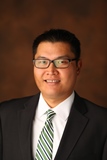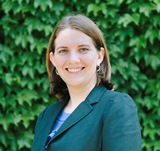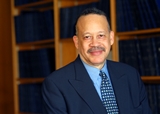APPAM Policy Council and Leadership Election
The Policy Council is APPAM's governing board and is responsible for setting policy and creating strategy for the Association. It currently consists of four elected cohorts serving staggered, four-year terms of office. The APPAM officers (ex officio voting); the APPAM Executive Director and the Editor of JPAM (ex-officio non-voting) comprise the Executive Committee; the Executive Committee is also part of the Policy Council.
Elections for the new four person cohort on the Policy Council, a Vice President and a Secretary began on December 15th. The election will run until midnight Eastern Time on January 14th.
Among the four person cohort for the Policy Council, one is a self-identified practitioner, one is an institutional representative selected by the Committee of Institutional Representatives and two are academics. All will serve four-year terms.
Finally, one student is appointed annually to serve a two-year term on the Policy Council There are two student seats on the Board and one new student is selected for service each year. They are appointed by the APPAM President, Ron Haskins, and the Chair of the Institutional Representatives, Juliet Musso. We are accepting nominations for this position until January 8th. Click here for more information on the nomination process.
You can view a list of the current APPAM Officers, descriptions of each officer position, the current APPAM Policy Council Members and review the bylaws for APPAM.
How to Vote
Voting for the next Policy Council cohort, which serves from 2016 through 2019, and for Vice President and Secretary, which serve from 2016 through 2017, began December 15th. The election will conclude at midnight, Eastern Standard Time, on January 14, 2016.
Follow the links below to the list of all nominees on this year's ballot. All current professional members received emailed instructions on how to vote on December 15th and will receive periodic reminders to vote until the January 14th deadline. If your membership has lapsed, you did not receive an e-mail with voting instructions. If you want to check the status of your membership, you can do so here. If you have not received an e-mail and feel that your membership is current, please contact Tara Sheehan.
Click on the links below to go to the section of the page with the particular set of nominees. Or just scroll down to read all the statements.
Leadership Nominees
The following is a list of nominees for APPAM's Officer Positions of Vice President and Secretary. Please note that President-Elect Carolyn Heinrich's was appointed to the position of President-Elect by the APPAM Nominating Committee and voted by acclamation at the 2015 Fall Research Conference Membership Meeting. Her statement is being presented for transparency and completeness and she is included in the ballot, although she was already appointed.
President-Elect Nominee (Uncontested; serves a 1-year term, automatically becomes APPAM President after the 2016 Fall Conference)
Carolyn Heinrich, Vanderbilt University
 It is a tremendous honor to be offered this opportunity to serve you as the President–Elect of APPAM. As a scholar with a Ph.D. in Public Policy, APPAM has been my professional “home” for more than 20 years, and it has been wonderful to see it expand and mature into the vibrant and dynamic organization it is today, under the leadership of many outstanding and dedicated individuals.
It is a tremendous honor to be offered this opportunity to serve you as the President–Elect of APPAM. As a scholar with a Ph.D. in Public Policy, APPAM has been my professional “home” for more than 20 years, and it has been wonderful to see it expand and mature into the vibrant and dynamic organization it is today, under the leadership of many outstanding and dedicated individuals.
The major responsibility of the President-Elect is to plan the APPAM fall conference, and this will be a particularly exciting year to take on this role, given that our conference will take place in Washington, DC less than a week before the 2016 Presidential election (November 3-5). The conference theme will be centered on the role of research in making government more effective, highlighting how both research and the policies and programs it informs can become stronger and more effective when researchers, practitioners and policy makers collaborate meaningfully in their work. We expect to have at least one election-focused event at the conference, and there are also several significant “anniversaries” coming up in 2016, including the 20th anniversary of welfare reform and the 50th anniversaries of the Coleman report and the Institute for Research on Poverty, that we will recognize or feature at the conference. In addition, like our recent successful conference in Miami, we will have space for approximately 280 conference sessions that will all be held in the same hotel (the Washington Hilton), so we are anticipating record conference attendance.
Finally, a special thanks to the dedication of a distinguished group of APPAM members who launched APPAM’s strategic planning efforts in 2010 and to others who have continued this work through 2015. APPAM President Ron Haskins and I will be working with our APPAM office leadership and other APPAM members to carry out the important work (identified in the most recent strategic plan) that will help our organization continue to grow and improve. We welcome your input, suggestions and participation on the conference and any other APPAM matters, and we look forward to working with you in the coming year!
Vice President Nominees (1 is elected for a 2-year term; there are two Vice Presidents on APPAM's Executive Committee and Policy Council, serving staggered terms)
Colleen Barry, Johns Hopkins University

I am pleased to be considered for the position of Vice President of APPAM. I am a Professor in the Department of Health Policy and Management at the Johns Hopkins Bloomberg School of Public Health. In my department, I serve as Associate Chair for Research and Practice. My research examines how public policies can affect a range of outcomes for persons with mental illness and substance use disorders, including access to health care and social services, health care quality and spending, consumer financial protection and mortality. I have been an active member of APPAM since completing my doctoral training, and I have been a member of the APPAM Policy Council since 2013. Most recently, I served on APPAM’s 2015 Strategic Planning Committee to guide the direction of the organization over the next five years. I have developed a tremendous appreciation for the critical role of APPAM in promoting scholarship and training in public policy and management. APPAM creates multiple forums for researchers to connect with each other and with policymakers, public managers and others to develop evidence on best practices in policy and public management, to rigorously train a next generation of researchers, and to effectively disseminate research to influence policy in practice. Through my involvement with the Policy Council, I have also developed an understanding of some of the most pressing challenges APPAM faces in fulfilling its mission. Most notably, APPAM needs to develop new strategies to diversify its membership to better reflect the public policy and management field and the evolving needs of our population with a focus on the most vulnerable groups. As Vice President, I would work collaboratively to identify creative ways to execute the strategic plan vision for the future direction of APPAM. I would be honored to have this opportunity to make a contribution to the public policy and management field.
Michael Shires, Pepperdine University
 I am excited and honored to be a candidate for Vice President of APPAM. During my more than 23 years of APPAM involvement, I am proud of the essential role that the organization has played in building bridges between policy scholars, policy analysis, and policy makers. In that time, I have served as an institutional representative for 17 years representing two institutions and in a variety of other leadership and committee roles, including a recent term as Chair of the Council of Institutional Representatives and as a member of the APPAM Policy Council and Executive Committee. In each of these roles, my focus has been to help APPAM play a leadership role in both defining and strengthening the profession and academic discipline of public policy, and to improve its ability to influence the making of public policy and policy decisions.
I am excited and honored to be a candidate for Vice President of APPAM. During my more than 23 years of APPAM involvement, I am proud of the essential role that the organization has played in building bridges between policy scholars, policy analysis, and policy makers. In that time, I have served as an institutional representative for 17 years representing two institutions and in a variety of other leadership and committee roles, including a recent term as Chair of the Council of Institutional Representatives and as a member of the APPAM Policy Council and Executive Committee. In each of these roles, my focus has been to help APPAM play a leadership role in both defining and strengthening the profession and academic discipline of public policy, and to improve its ability to influence the making of public policy and policy decisions.
As Vice President, I would continue that work—seeking to lead APPAM’s efforts to expand the impact our policy research has on public policy and working with our member institutions to create new ways for the association and the discipline to reflect better the diversity and heterogeneity of the publics we serve. APPAM has hosted several important conversations around this subject, and I would love to see the association lead the next steps forward.
Because I am a Ph.D. graduate of an APPAM program and teach at a masters-level policy program, I strongly identify with APPAM and consider it my primary professional association. My scholarship spans the politics and finance of state and local government, including ethics and accountability, and education finance and governance at both the K-12 and tertiary levels. In addition, my current work in economic development builds new and sustainable economic partnership opportunities in economically depressed neighborhoods under the provisions of California’s groundbreaking climate change legislation.
I see APPAM as a key resource to the global policy community to improve the quality of public policy choices through better participation, analysis, research and inclusiveness in its scholarship, outreach, and leadership and I would be honored to carry that passion and vision forward as its Vice President.
Secretary (1 is elected for a 2-year term)
Christopher "Kitt" Carpenter, Vanderbilt University
 I am very excited for the opportunity to run for the position of APPAM Secretary and to contribute to APPAM’s Executive Committee and Policy Council. I have been an active APPAM member my entire professional career and have attended every Fall Research Conference since earning my PhD in 2002. Like many of you, I consider the organization to be my main intellectual home. Currently I am a Professor of Economics at Vanderbilt University where I also hold a courtesy appointment in the Department of Health Policy at the Vanderbilt University Medical Center. My research is in empirical health and labor economics, with a particular focus on substance use policy; cancer prevention; and LGBT policies (more information about my scholarship can be found here). I have been fortunate to have many current and former APPAM service opportunities, including: JPAM Co-Editor (2010-2014), JPAM Editorial Board Member (2006-2010, 2015-present), Fall Research Conference Co-Chair for Social Equity (2013-present), and APPAM Policy Council member (2012-2013).
I am very excited for the opportunity to run for the position of APPAM Secretary and to contribute to APPAM’s Executive Committee and Policy Council. I have been an active APPAM member my entire professional career and have attended every Fall Research Conference since earning my PhD in 2002. Like many of you, I consider the organization to be my main intellectual home. Currently I am a Professor of Economics at Vanderbilt University where I also hold a courtesy appointment in the Department of Health Policy at the Vanderbilt University Medical Center. My research is in empirical health and labor economics, with a particular focus on substance use policy; cancer prevention; and LGBT policies (more information about my scholarship can be found here). I have been fortunate to have many current and former APPAM service opportunities, including: JPAM Co-Editor (2010-2014), JPAM Editorial Board Member (2006-2010, 2015-present), Fall Research Conference Co-Chair for Social Equity (2013-present), and APPAM Policy Council member (2012-2013).
I would bring a unique perspective to the position of APPAM Secretary as a policy researcher who has held professional positions in a school of public health, a medical school, a business school, and an arts & sciences economics department – but never in a policy school. As we strive to increase our membership base among scholars whose primary appointments are outside of the ‘traditional’ APPAM walls, I believe my experiences could make very valuable contributions and help us make APPAM membership vital and relevant to individuals who primarily identify with the American Economic Association, AcademyHealth, the American Public Health Association, and other allied groups. I would also bring to APPAM my experiences as an elected member of the Board of Directors of my other intellectual home, the American Society of Health Economists (ASHEcon), an association that is similar in many respects to APPAM and faces a number of the same challenges and opportunities.
I would be honored to serve as APPAM Secretary, and if elected I would focus on increasing transparency and accountability of the Executive Committee and Policy Council to the general membership, for example by working to post the meeting minutes of the Executive Committee and the Policy Council on the APPAM website, similar to what the American Economic Association does (see here). I would also like to increase the diversity (broadly defined) of APPAM’s elected leadership and would work to make this a priority as a member of the Executive Committee. Finally, I would strive to support the APPAM staff, who I think do an outstanding job for us. Thank you for your consideration!
Matthew Stagner, Mathematica Policy Research
 I have been an APPAM member for over 30 years, serving at various times on the Policy Council, as Treasurer, and as Secretary. I would be delighted to be elected Secretary this year. APPAM is a thriving organization that faces important opportunities in the next two years.
I have been an APPAM member for over 30 years, serving at various times on the Policy Council, as Treasurer, and as Secretary. I would be delighted to be elected Secretary this year. APPAM is a thriving organization that faces important opportunities in the next two years.
I understand the common concerns and the unique perspectives of APPAM members. I have been an APPAM member as a student, a young research professional, and an institutional representative for university, research organizations, and government. I have attended every APPAM fall conference in the past 30 years. I hold advanced degrees from two APPAM member organizations (The Harris School at the University of Chicago and Harvard University’s John F. Kennedy School of Government). My professional experience includes work in the Office of the Assistant Secretary for Planning and Evaluation at the U.S. Department of Health and Human Services, at the Urban Institute, the Harris School, and Chapin Hall at the University of Chicago. At Mathematica, I now serve as Senior Fellow and Director of Human Services Research in Chicago. It is the wonderful mixture of organizations and individuals—researchers from government and academia and policy professionals past and present—that makes APPAM a unique and effective organization.
I have a strong commitment to the implementation of APPAM’s new strategic plan. It has been a great pleasure to work on the committee that recently completed a five year plan.
I look forward to the possibility of working with other APPAM leaders to implement that plan. In particular, I am thrilled by the redoubling of efforts to enhance the connection between research and practice. Over the next few years we are poised to make great strides in improving this connection. As someone who has worked in multiple research-producing and research-consuming organizations I hope to bring a multifaceted perspective to these issues.
I also look forward to expanding APPAM’s reach, increasing the involvement of other disciplines and policy areas. As a public policy generalist and social policy researcher, I understand the importance of adding additional and underrepresented voices to the APPAM family.
Finally, I am committed to the training and nurturing of young policy scholars and policy makers. I enjoy mentoring and improving APPAM’s connections to and supports for students and young professionals. APPAM should enhance its position as a place for growth and exploration.
I would be honored to serve again as APPAM’s Secretary. As the APPAM Policy Council evolves, it is crucial to have both experienced leadership and increased involvement by all members on committees and other activities. I look forward to putting my experience to work.
Back to top of page.
Practitioner Nominees (1 is elected for a 4-year term)
Stephen Bell, Abt Associates
 I am excited to serve on the APPAM Policy Council to give back more fully to the organization that has propelled my three-decade career in evaluation research. I foresee focusing contributions primarily in two areas where I see great opportunity for expanding APPAM’s influence and professional value: globalization and mixed-methods integration. Building on what has already been accomplished I believe APPAM can move strongly into the international arena, modifying and honing its craft and applying that craft more globally. Scientifically rigorous learning about “what works” in development aid has exploded into prominence in recent years as the stated goal of development-aid donor organizations worldwide.
I am excited to serve on the APPAM Policy Council to give back more fully to the organization that has propelled my three-decade career in evaluation research. I foresee focusing contributions primarily in two areas where I see great opportunity for expanding APPAM’s influence and professional value: globalization and mixed-methods integration. Building on what has already been accomplished I believe APPAM can move strongly into the international arena, modifying and honing its craft and applying that craft more globally. Scientifically rigorous learning about “what works” in development aid has exploded into prominence in recent years as the stated goal of development-aid donor organizations worldwide.
The APPAM community should be seminal in advancing this cause, for the betterment of people’s lives around the planet, beginning with stronger global membership outreach and greater involvement in international development studies. As a U.S. evaluation practitioner with now four years’ experience guiding impact evaluations of international aid, I will seek to advance this agenda as a Council member. Secondly, I will work to intensify efforts, and hence hasten progress, toward blending qualitative and quantitative tools of policy learning into truly “mixed-methods” paradigms. I am committed to pushing the qualitative and quantitative camps of the profession toward sustained collaboration on this front to achieve policy learning models better than either source alone.
APPAM should encourage greater interaction between leading practitioners of quantitative impact analysis and leading investigators of qualitative institutional, behavioral, and outcome change in the public sector at the annual research conference (in both panel organization and panel attendance) and other forums. On both fronts—and others that will come to light during my Council service—I believe I can contribute substantially to the APPAM mission from knowledge gained during a long career as designer, investigator, and policy interpreter of large-scale evaluations of government social programs.
Steve Garasky, IMPAQ International
 It is a great honor to be nominated as a candidate for the APPAM Policy Council, an organization I have belonged to for more than 25 years, 10 as an Institutional Representative. Having been a federal policy maker (Economist at USDHHS/ASPE), an academic (Full Professor at Iowa State University), and a contract researcher (Vice President at IMPAQ International), I would bring deep experience in all three key areas of APPAM’s work:
It is a great honor to be nominated as a candidate for the APPAM Policy Council, an organization I have belonged to for more than 25 years, 10 as an Institutional Representative. Having been a federal policy maker (Economist at USDHHS/ASPE), an academic (Full Professor at Iowa State University), and a contract researcher (Vice President at IMPAQ International), I would bring deep experience in all three key areas of APPAM’s work:
• For state and federal agencies, I can help improve program performance with fewer dollars, while meeting more rigorous requirements.
• For academics, I can help address declining enrollments in programs.
• For researchers, I can help increase access to data and provide an understanding of policy makers’ concerns.
Familiar with APPAM’s governance issues, and relying on the operational experience of having started a new division in a public policy firm, I am capable of providing organizational direction, facilitating the selection of conference themes, and providing editorial input into JPAM.
My research interests have focused on helping low-income individuals and households meet their basic needs, and I have published extensively in the areas of food assistance (Food Stamps / SNAP), cash assistance (TANF), as well as employment and child support enforcement.
Throughout my career, I have worked to implement policies and enhance programs that improve quality of life for vulnerable populations. I have also been involved in mentoring a new generation of policy professionals. Currently, I am closely engaged with the issues that matter to APPAM, overseeing major program implementations for several federal and state agencies covering child welfare, child policy education, employment and training, family policy, health, housing and community development, and nutrition.
If elected, I pledge to represent diverse viewpoints and work diligently to grow and improve both the organization and the next generation of policy professionals.
Back to top of page.
Academic Nominees (2 are elected for 4-year terms)
Alexandra Killewald, Harvard University
 I am honored to be among the academic nominees for the APPAM Policy Council. I am currently an associate professor in Sociology at Harvard University, but my first post-PhD job was as a researcher for Mathematica Policy Research. I believe that this mix of experiences inside and outside academia positions me well to participate in the leadership of APPAM, which consciously incorporates the perspectives of both academics and practitioners. Substantively, my research focuses on the family as a site for the production and reproduction of inequality by class and gender. Specifically, I examine the consequences of partnership and parenthood for men’s and women’s work lives. My research approach is informed by my interdisciplinary training.
I am honored to be among the academic nominees for the APPAM Policy Council. I am currently an associate professor in Sociology at Harvard University, but my first post-PhD job was as a researcher for Mathematica Policy Research. I believe that this mix of experiences inside and outside academia positions me well to participate in the leadership of APPAM, which consciously incorporates the perspectives of both academics and practitioners. Substantively, my research focuses on the family as a site for the production and reproduction of inequality by class and gender. Specifically, I examine the consequences of partnership and parenthood for men’s and women’s work lives. My research approach is informed by my interdisciplinary training.
In 2011, I received a PhD in Public Policy and Sociology from the University of Michigan, where I also earned an MA in Statistics. My research has been published in journals spanning several disciplines, including American Sociological Review, American Economic Review, and Demography. If elected to the Policy Council, I hope to encourage ties between members with different disciplinary and institutional affiliations. As a member of the Policy Council, I would also work to strengthen institutional practices that recruit and support underrepresented minorities.
Dave Marcotte, American University
 I am honored to be nominated and would be happy to serve on the Policy Council. I have been an active member of APPAM for more than 20 years. During that time I have contributed to and benefited from APPAM’s support of the research, policy and management communities. As a regular participant at the Fall Research Conference and reviewer and author in the Journal of Public Policy Analysis and Management, I value the role the association plays in providing important venues for the highest quality applied research on public policy and management issues.
I am honored to be nominated and would be happy to serve on the Policy Council. I have been an active member of APPAM for more than 20 years. During that time I have contributed to and benefited from APPAM’s support of the research, policy and management communities. As a regular participant at the Fall Research Conference and reviewer and author in the Journal of Public Policy Analysis and Management, I value the role the association plays in providing important venues for the highest quality applied research on public policy and management issues.
APPAM is unparalleled in its capacity to bring together the best researchers and practitioners interested in the gamut of policy and management issues important today. By way of background, I have a master’s degree in public policy from the Humphrey Institute at the University of Minnesota, a PhD in public policy from the School of Public Policy at the University of Maryland and am Professor of public policy in the School of Public Affairs and Director of the Washington Institute for Public Affairs Research at American University. My research interests are primarily in the areas of education and health. If elected to the Policy Council I would work to further expand the work of APPAM in cultivating exchange between academics and practitioners, and students and professionals.
Lenna Nepomnyaschy, Rutgers University
 I am very excited about the possibility of serving on the APPAM Policy Council. I have been actively participating in APPAM’s fall research conference since 2000 as a session organizer, chair, discussant, and poster and paper presenter, and very much identify APPAM as my intellectual home. I am an Associate Professor at the Rutgers University School of Social Work and my research focuses broadly on the roles of poverty and inequality in family well-being. Much of my work has examined the impact of social policies, particularly those related to fathers and child support, on the health and well-being of children in single-parent families. Another line of work has explored socioeconomic and racial/ethnic disparities in child health and development.
I am very excited about the possibility of serving on the APPAM Policy Council. I have been actively participating in APPAM’s fall research conference since 2000 as a session organizer, chair, discussant, and poster and paper presenter, and very much identify APPAM as my intellectual home. I am an Associate Professor at the Rutgers University School of Social Work and my research focuses broadly on the roles of poverty and inequality in family well-being. Much of my work has examined the impact of social policies, particularly those related to fathers and child support, on the health and well-being of children in single-parent families. Another line of work has explored socioeconomic and racial/ethnic disparities in child health and development.
I received my PhD at Columbia School of Social Work, where policy research was a primary focus. Since coming to Rutgers, I have worked to highlight the importance of policy research and practice to our MSW and PhD students, as well as to our faculty. Similarly, over these years, I have worked to increase disciplinary diversity at APPAM by publicizing and encouraging attendance at the APPAM conference among policy researchers at schools of social work and organizing an annual networking event for social work faculty and doctoral students at the fall conference. APPAM has been instrumental to my research and career trajectory by allowing me to get feedback from and network with some of the most important scholars doing work in my area.
If elected to the policy council, I very much look forward to contributing my energy and ideas so that APPAM continues to be the primary platform for disseminating the most current, rigorous, and relevant policy-related research and continues to be the most fertile environment for mentoring and supporting new generations of policy scholars.
Jenni Owen, Duke University
 I am honored to be nominated as a candidate for APPAM’s Policy Council. As a faculty member at Duke’s Sanford School of Public Policy and director of policy initiatives at the Center for Child and Family Policy, my focus is on enhancing interaction among research, policy, and practice. Of particular relevance to the APPAM Policy Council is my work on elected and executive branch policymakers’ use of research and strategies for enhancing and increasing that use. For over 20 years, I have authored and co-authored publications geared towards policymaker and practitioner audiences and have guided others in their efforts to develop such resources. I also work closely with state policymakers and legislative staff on a range of efforts. My research interests include poverty alleviation and preK-12 education with a particular interest in youth justice and school discipline.
I am honored to be nominated as a candidate for APPAM’s Policy Council. As a faculty member at Duke’s Sanford School of Public Policy and director of policy initiatives at the Center for Child and Family Policy, my focus is on enhancing interaction among research, policy, and practice. Of particular relevance to the APPAM Policy Council is my work on elected and executive branch policymakers’ use of research and strategies for enhancing and increasing that use. For over 20 years, I have authored and co-authored publications geared towards policymaker and practitioner audiences and have guided others in their efforts to develop such resources. I also work closely with state policymakers and legislative staff on a range of efforts. My research interests include poverty alleviation and preK-12 education with a particular interest in youth justice and school discipline.
As a member of the Policy Council, I would continue to work to infuse APPAM conferences and initiatives with enhanced and more diverse policymaker involvement from both the legislative and executive branches at the federal, state, and local levels, as well as internationally. For instance, at each APPAM fall conference since 2009 as well as at the recent APPAM Spring Conference on How Policymakers Use APPAM Member Research, I have organized roundtables on evidence-based policy that feature academics, elected and executive branch leaders, think tank officials, and other policy experts. I would bring to the policy council federal and state government experience and extensive work with students pursuing careers that include the intersection of research and policy. It is my hope to work with APPAM to ensure encouragement and support of the policy research interests of students at all levels and of diverse backgrounds. Doing so will have institutional benefits for APPAM and its members, as well as benefits broadly for the field.
Kosali Simon, Indiana University
 I would find it a tremendous honor to serve on the APPAM Policy Council to work towards sustaining the growth and improvement of this remarkable organization. During the past 15 years, I have attended the Fall Conference regularly, and I have watched APPAM flourish. I have been fortunate to be involved in other APPAM activities in the past (being on the program committee of the Fall Conference for five of the past six years, serving as a member of the Nominations Committee in 2010-2012, as a co-editor of JPAM from 2010-2015 and now a member of its Editorial Board) and I have grown to understand and value the mission of APPAM and the people who represent it.
I would find it a tremendous honor to serve on the APPAM Policy Council to work towards sustaining the growth and improvement of this remarkable organization. During the past 15 years, I have attended the Fall Conference regularly, and I have watched APPAM flourish. I have been fortunate to be involved in other APPAM activities in the past (being on the program committee of the Fall Conference for five of the past six years, serving as a member of the Nominations Committee in 2010-2012, as a co-editor of JPAM from 2010-2015 and now a member of its Editorial Board) and I have grown to understand and value the mission of APPAM and the people who represent it.
I am a health economist whose research focuses on government regulations related to health insurance. I teach in the School of Public and Environmental Affairs (SPEA) Indiana University where I have been a Professor since 2010, in SPEA’s MPA and Phd programs; I also teach undergraduate policy and management students there. Outside of SPEA, I am now in my second year as director of the mentoring workshop aimed at junior female economists organized by a committee of the American Economic Association. One aspiration I have, if I were elected to the Policy Council, is to bring what I have learned about organizing mentoring activities to APPAM to help develop the ways we nurture our junior scholars.
David Van Slyke, Syracuse University
 It is an honor to be nominated for the APPAM Policy Council. I became engaged with APPAM as a doctoral student twenty years ago at Rockefeller College and received generous mentoring from members committed to the public policy profession. Having worked across the sectors, using evidence to shape the design, implementation, and evaluation of policy was something I needed as a practitioner and professor. As a scholar of government contracting and public-private partnerships, my research has sought to bridge policy and organizational management questions using data to investigate questions around policy tools and implementation mechanisms.
It is an honor to be nominated for the APPAM Policy Council. I became engaged with APPAM as a doctoral student twenty years ago at Rockefeller College and received generous mentoring from members committed to the public policy profession. Having worked across the sectors, using evidence to shape the design, implementation, and evaluation of policy was something I needed as a practitioner and professor. As a scholar of government contracting and public-private partnerships, my research has sought to bridge policy and organizational management questions using data to investigate questions around policy tools and implementation mechanisms.
In my current role as Associate Dean and Chair of the Department of Public Administration and International Affairs at the Maxwell School of Syracuse University, I see this need and APPAM’s role as even more important. This is evidenced by more global and intergovernmental engagements, and the proliferation of and need for effective and accountable government-business-nonprofit relationships. I’ve worked, delivered trainings, and conducted scholarship on policy implementation in the U.S., Europe and South and East Asia while teaching courses at Syracuse and Maastricht. My commitment to APPAM is in promoting dialogue and research on the intersection of policy and management by serving as a bridge to these communities. I will serve the APPAM Policy Council with the same high degree of engagement as my commitments as a director on the National Academy of Public Administration board, past board service and conference leadership on the Public Management Research Association, and committee leadership with the Association for Research on Nonprofit Organizations and Voluntary Action, and the Network of Schools of Public Policy, Affairs, and Administration.
While our methods, analysis, and theories are different, my interest in serving on the Policy Council is to promote engagement on the complex and multi-sectoral approaches to policy implementation.
Back to top of page.
Institutional Member Representative (1 is elected for a 4-year term)
**Please note that only institutional members vote for the institutional member representative on the Policy Council. As such, only institutional members will be able to see the choices for this race, and vote for one candidate, on their ballot.**
Samuel Myers, University of Minnesota
 I seek the position of the Committee of Institutional Representatives’ representative to the APPAM Policy Council because I am deeply committed and especially (and perhaps uniquely) positioned to advance a critical APPAM objective in the years to come: a broader and more diverse representation in all aspects of our organization – so that we remain relevant to the public policy analysis and management issues that confront us domestically and globally.
I seek the position of the Committee of Institutional Representatives’ representative to the APPAM Policy Council because I am deeply committed and especially (and perhaps uniquely) positioned to advance a critical APPAM objective in the years to come: a broader and more diverse representation in all aspects of our organization – so that we remain relevant to the public policy analysis and management issues that confront us domestically and globally.
APPAM institutional representatives are busy leaders within their own institutions who meet twice a year in what was once a largely ceremonial gathering. Now, with formal representation on the APPAM policy council and with far more academic and research institutions in the USA and abroad as members, a more integral involvement with the future of the organization is envisioned. This more integral involvement includes contributing to the successful implementation of the APPAM Strategic Plan, diversification of the profession, enhanced member benefits, and tackling complex organizational issues mapping the future of the profession.
My first meetings as a member of the APPAM Policy Council from 1983-1986 hosted by such former leaders as Donald Stokes at Princeton, Eugene Smolensky at Berkeley, John Brandl at Minnesota, and Otto (Toby) Davis at Carnegie Mellon were small gatherings in which decision-making was confined to a limited set of actors. It was also an era of vibrant, generously funded minority summer programs at a half-dozen APPAM schools helping to spur a dramatic growth in minority representation in the profession. But over the course of the past two decades, as demands for such training only increased, many of the trends have been in the other direction. As vice-president in 1997-1999 and then president-elect and president in 2000-2001 I regrettably observed a number of the minority summer programs dismantled and funding for diversity evaporate. This meant finding new and innovative ways to help APPAM become more diverse with a broader set of policy and management areas represented in our research conference and on the spring program. I have been deeply involved in these efforts, through hosting receptions for underrepresented groups and creating and supporting affinity groups within our research conference; co-chairing the Social Equity section of the APPAM program committee; hosting the Executive Leadership Institute of the National Forum for Blacks in Public Administration; convening of policy centers on social equity, and serving on the original PPIA board. This work has convinced me that the future of the profession lies with being attentive to the changing demographics of the population that our organization hopes to serve.
As your representative on the Policy Council I will provide more than merely an institutional memory of the phase of our organization when we were smaller and more intimate. As I’ve indicated, I will strongly support a broader and more diverse representation in all aspects of our organization so we remain relevant to the public policy analysis and management issues that confront us domestically and globally. I will work tirelessly to support the efforts to make APPAM the organization of choice for the diverse group of researchers and scholars who are the future of policy analysis and management.
Samuel Myers is the Roy Wilkins Professor of Human Relations and Social Justice at the Hubert H. Humphrey School of Public Affairs, University of Minnesota where he conducts research, teaching and community outreach on problems of racial and ethnic economic inequality.
Sharon Tennyson, Cornell University
 I am a Professor in the Department of Policy Analysis and Management at Cornell University, which offers undergraduate and PhD degrees in policy analysis. In addition, I am Director of the Cornell Institute of Public Affairs which offers an MPA degree. I am also the current Editor of the Journal of Consumer Affairs, a multidisciplinary peer-reviewed journal focused on consumer behavior and consumer policy. I hold a Ph.D. in economics from Northwestern University with specializations in industrial organization and public economics. My research addresses economic and policy issues in retail markets, with a focus on consumer protection regulations. I am particularly known for my work studying the impact of government laws and regulations in insurance markets, and am a frequent speaker in public venues on these topics. I believe that my particular combination of research, teaching and administrative experiences will bring valuable new perspectives to the APPAM Policy Council as an Institutional Representative.
I am a Professor in the Department of Policy Analysis and Management at Cornell University, which offers undergraduate and PhD degrees in policy analysis. In addition, I am Director of the Cornell Institute of Public Affairs which offers an MPA degree. I am also the current Editor of the Journal of Consumer Affairs, a multidisciplinary peer-reviewed journal focused on consumer behavior and consumer policy. I hold a Ph.D. in economics from Northwestern University with specializations in industrial organization and public economics. My research addresses economic and policy issues in retail markets, with a focus on consumer protection regulations. I am particularly known for my work studying the impact of government laws and regulations in insurance markets, and am a frequent speaker in public venues on these topics. I believe that my particular combination of research, teaching and administrative experiences will bring valuable new perspectives to the APPAM Policy Council as an Institutional Representative.
I am especially interested in contributing to the Council’s objectives of expanding research and topical diversity of membership and research, and promoting the discipline of public policy analysis and management. Although my disciplinary field is not unusual for APPAM, my focus on market regulation and consumer protection and my experience as director of a large MPA degree program add breadth in research areas, teaching perspectives and professional contacts. I believe I can help APPAM make connections to researchers in important policy areas and disciplines not well represented in the organization. In my many years of teaching in public policy I have noted with frustration the increasing “siloing” of public policy teaching into disciplines, and the lack of leadership in curriculum development for public policy and management. I believe that both PhD and masters’ level education in public policy and management could be strengthened by collaboration of APPAM with other organizations, and of institutional members within APPAM, and I am willing to contribute ideas and efforts to those ends.
Back to top of page.